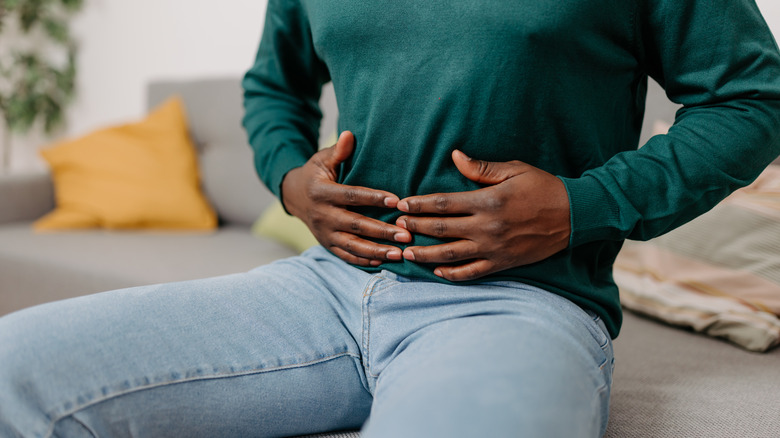
We may receive a commission on purchases made from links.
Often, your morning routine is on autopilot – you get out of bed, sip some water, visit the bathroom, complete your tasks, and then prepare your morning coffee.
However, there are occasions when you might take a second look at your stool, especially if you’re curious about why it turns green. Consuming too many green grapes can lead to this, as registered dietitian nutritionist Mary Sabat explains (via Eat This, Not That!).
“Green-colored poop after eating green grapes can be attributed to a natural pigment present in grapes called chlorophyll. Chlorophyll is responsible for the green color in plants and can sometimes pass through your digestive system without being fully broken down,” the expert stated. Undigested chlorophyll in grapes is the reason behind green-hued feces. Even when you eat grapes of other shades, like blue or purple, the undigested coloring can combine with your regular stool and result in green poop.
Eating too many grapes can give you diarrhea, too

While fruits are rich in fiber and beneficial for digestion, overindulging in grapes can lead to diarrhea (per WebMD). This is because grapes, like many fruits, contain fructose (natural sugar). They are classified as a high-fructose fruit and also have tannins. Both compounds can cause gas, stomach upset, and diarrhea, according to the Australian Institute of Food Safety.
If you have food intolerances or irritable bowel syndrome (IBS), eating grapes could lead to digestive problems such as bloating, constipation, or diarrhea. Additionally, a grape allergy might cause an upset stomach, vomiting, cramps, and other symptoms even with a small amount of grapes.
Ignoring poop color, food intolerances, and allergies, grapes are noted for their antioxidant, anti-inflammatory, and lipid-reducing effects and are a healthy addition to your diet. Their high fiber and potassium content supports cardiovascular health, alleviates constipation, and helps regulate blood pressure (per Medical News Today). Regular grape consumption is also associated with improved eye and brain health. According to Healthline, the vitamin K in grapes may help prevent osteoporosis. Ultimately, understanding the benefits and side effects of grapes and knowing the right amount to consume is essential.
How to eat grapes without overdoing it

According to the U.S. Department of Agriculture’s MyPlate guidelines for fruit consumption, the recommended daily fruit intake varies based on age, physical activity, and other factors. On average, adult women should consume 1½ to 2 cups daily, while adult men should aim for 2 to 2½ cups per day. For grapes, one cup equals 22 seedless grapes.
However, as noted by Joshua J. Redd, a chiropractic physician and author of “The Truth About Low Thyroid: Stories of Hope and Healing for Those Suffering with Hashimoto’s Low Thyroid Disease,” the higher fructose content in grapes is noteworthy. “Keep in mind that grapes and other fruits today have been bred to be much sweeter than they originally were. Due to their high sugar content, grapes are best enjoyed in moderation,” he explained (via USA Today).
Moreover, if you have underlying health issues that could be impacted by the sugar, fiber, or other properties in grapes, consult with your healthcare provider before incorporating them into your diet. For instance, individuals on blood-thinning medications who need to maintain stable vitamin K levels should be cautious about consuming too many grapes. It’s not just green poop or diarrhea to worry about with excessive grape consumption.




